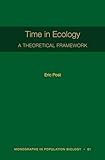Have you ever wondered how scientific breakthroughs happen? It’s not always a eureka moment under an apple tree. Often, it’s a shift in perspective, a new way of thinking that completely reshapes our understanding of the world. These paradigm shifts are driven by theoretical frameworks, powerful conceptual tools that redefine scientific disciplines. They provide scientists with a lens through which to interpret data, formulate hypotheses, and design experiments. Let’s explore some of these groundbreaking frameworks and how they revolutionized scientific thought.
The Power of Perspective: How Frameworks Shape Scientific Inquiry
Theoretical frameworks provide structure and direction to scientific research. They are not just abstract ideas; they are the very foundation upon which entire disciplines are built. Imagine trying to build a house without a blueprint. It would be chaotic, wouldn’t it? Similarly, scientific inquiry needs a framework to guide its progress.
Darwin’s Theory of Evolution: Reshaping Biology
Charles Darwin’s theory of evolution by natural selection is a prime example of a framework that revolutionized a scientific discipline. Before Darwin, the dominant view was that species were fixed and unchanging. Darwin’s framework, presented in “On the Origin of Species,” introduced the concepts of variation, inheritance, and natural selection, explaining how species adapt and evolve over time. This completely transformed biology, providing a unifying explanation for the diversity of life on Earth. As Theodosius Dobzhansky, a prominent evolutionary biologist, famously said, “Nothing in biology makes sense except in the light of evolution.”
The Germ Theory of Disease: Transforming Medicine
The germ theory of disease, pioneered by scientists like Louis Pasteur and Robert Koch, is another landmark framework. Before its acceptance, diseases were often attributed to miasma, or “bad air.” The germ theory proposed that microorganisms are the cause of many diseases. This seemingly simple idea revolutionized medicine, leading to advancements in sanitation, hygiene, and the development of antibiotics. It’s hard to imagine modern medicine without the understanding provided by this framework.
Plate Tectonics: Remaking Geology
Plate tectonics, a relatively recent framework, revolutionized our understanding of Earth’s dynamic processes. It proposes that the Earth’s lithosphere is divided into plates that move and interact, causing earthquakes, volcanoes, and mountain formation. Before plate tectonics, geological phenomena were explained by various disparate theories. This framework provided a unifying explanation, transforming geology and our understanding of the planet itself.
 Plate Tectonics Theory
Plate Tectonics Theory
Other Transformative Frameworks
Numerous other frameworks have reshaped scientific disciplines:
Einstein’s Theory of Relativity: Redefining Physics
Einstein’s theory of relativity revolutionized physics, challenging Newtonian concepts of space, time, and gravity. It provided a new understanding of the universe and paved the way for advancements in cosmology and astrophysics.
The Cognitive Revolution: Reshaping Psychology
The cognitive revolution in psychology shifted the focus from observable behavior to internal mental processes. This framework emphasizes the importance of studying mental processes like memory, attention, and language, leading to new approaches in therapy and understanding human behavior.
Quantum Mechanics: Redefining the Subatomic World
Quantum mechanics, with its counterintuitive principles, transformed our understanding of the subatomic world. It challenged classical physics and provided a new framework for understanding the behavior of matter and energy at the smallest scales.
The Ongoing Evolution of Scientific Thought
It’s important to remember that scientific frameworks are not static. They are constantly being refined and revised as new evidence emerges. The process of scientific inquiry is a continuous cycle of observation, hypothesis formation, experimentation, and refinement. The frameworks that redefine scientific disciplines are not just historical artifacts; they are dynamic tools that continue to shape our understanding of the world.
Applying Frameworks in Everyday Life
While these theoretical frameworks may seem abstract, they have profound implications for our daily lives. From understanding the evolution of antibiotic resistance to appreciating the geological forces that shape our planet, these frameworks provide us with a deeper understanding of the world around us.
The Importance of Critical Thinking
Understanding the role of theoretical frameworks also encourages critical thinking. By recognizing that scientific understanding is constantly evolving, we become more discerning consumers of information, better equipped to evaluate evidence and draw informed conclusions.
Conclusion
Theoretical frameworks are the invisible architecture of scientific disciplines. They shape our understanding of the world, guiding research and driving breakthroughs. From Darwin’s theory of evolution to the germ theory of disease, these frameworks have revolutionized scientific thought and continue to shape our understanding of the world. By appreciating the power of these frameworks, we gain a deeper appreciation for the process of scientific discovery and the ever-evolving nature of knowledge. What other theoretical frameworks do you think have significantly impacted scientific disciplines? Share your thoughts in the comments below!
- English (Publication Language)
- 264 Pages - 11/04/2014 (Publication Date) - SAGE Publications, Inc (Publisher)
- Bingham, Andrea J. (Author)
- English (Publication Language)
- Used Book in Good Condition
- Anfara, Vincent A. (Author)
- Larsen, Henrik Gert (Author)
- English (Publication Language)
- Strayhorn, Terrell Lamont (Author)
- English (Publication Language)
- English (Publication Language)
- 336 Pages - 10/02/2018 (Publication Date) - Utah State University Press (Publisher)
- Hardcover Book
- English (Publication Language)
- Thomson, David (Author)
- English (Publication Language)
- Post, Eric (Author)
- English (Publication Language)
- Amazon Kindle Edition
- Roberts, Donna L. (Author)










